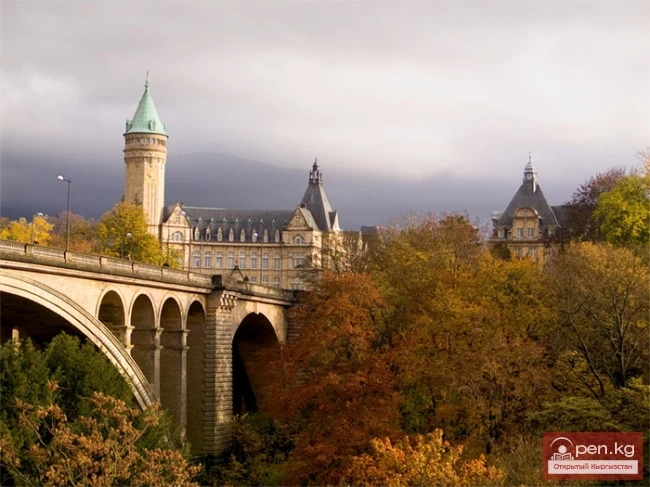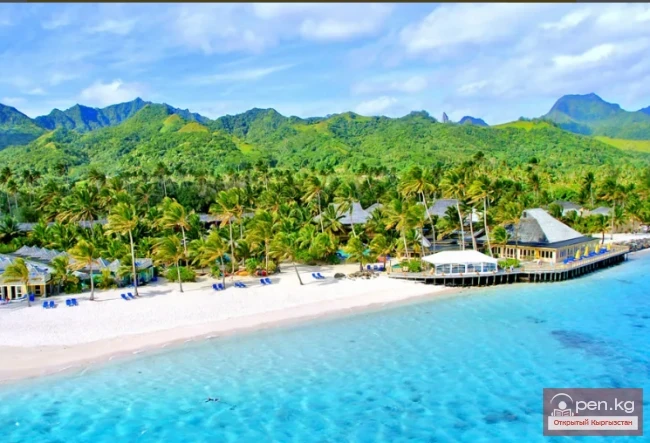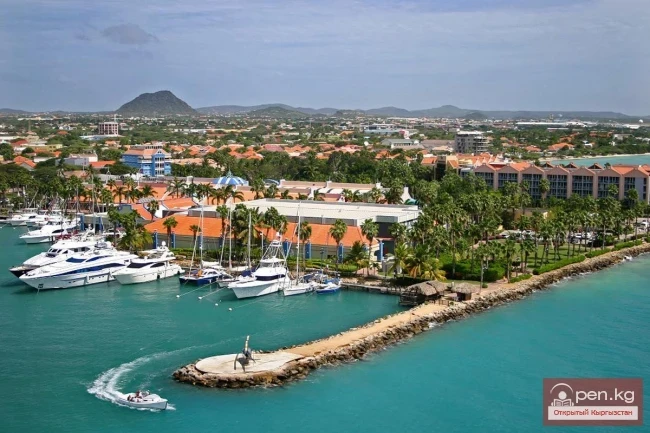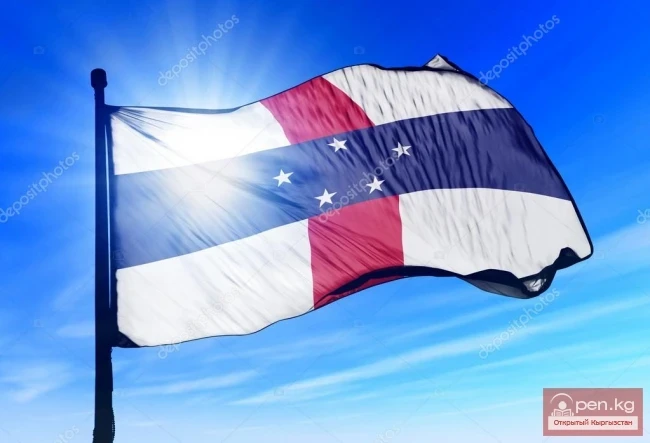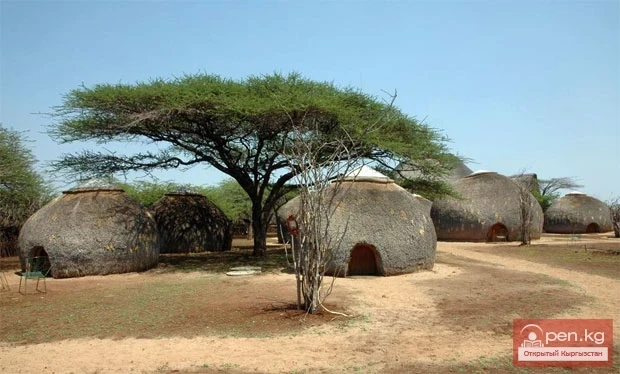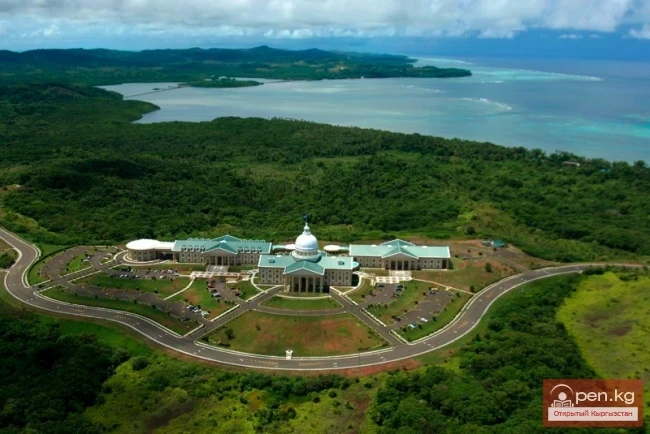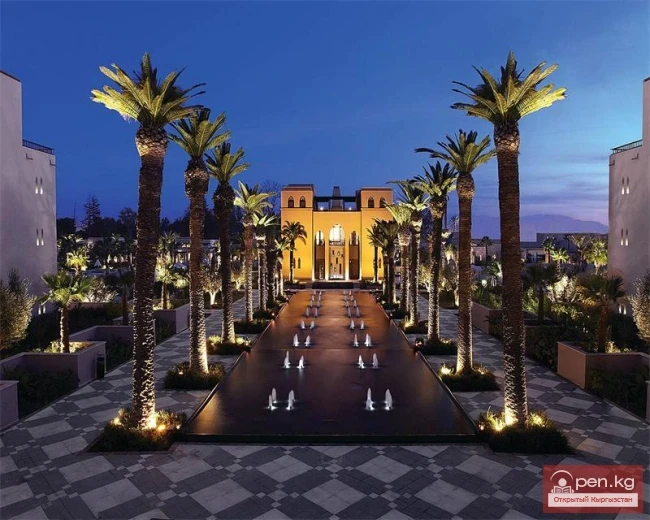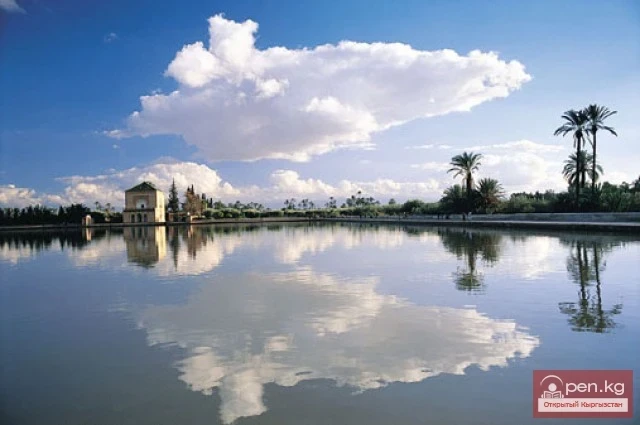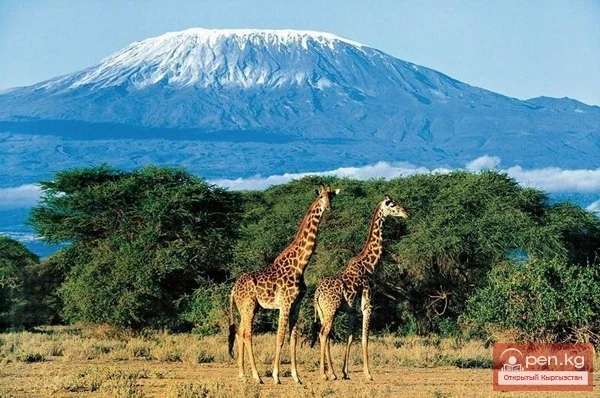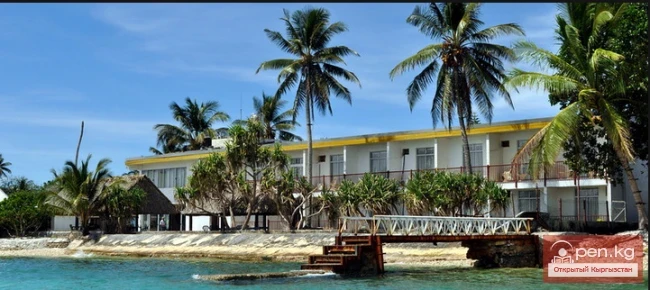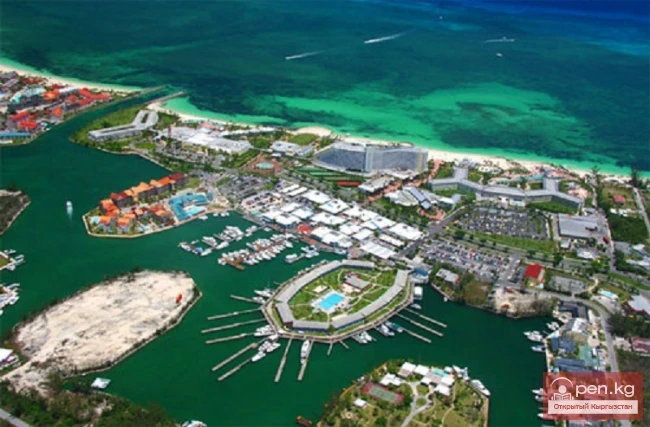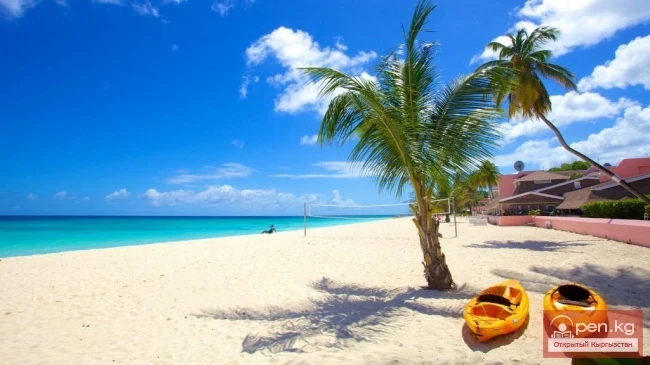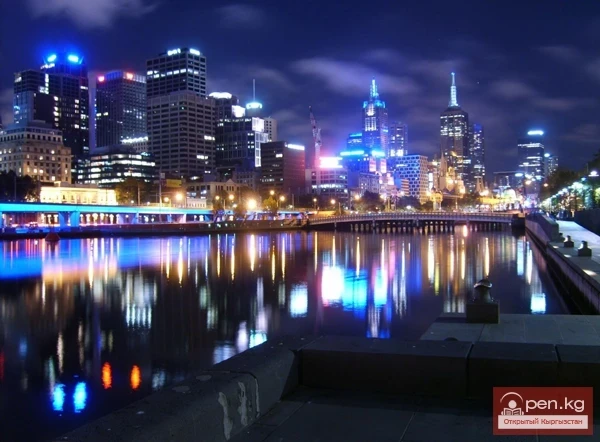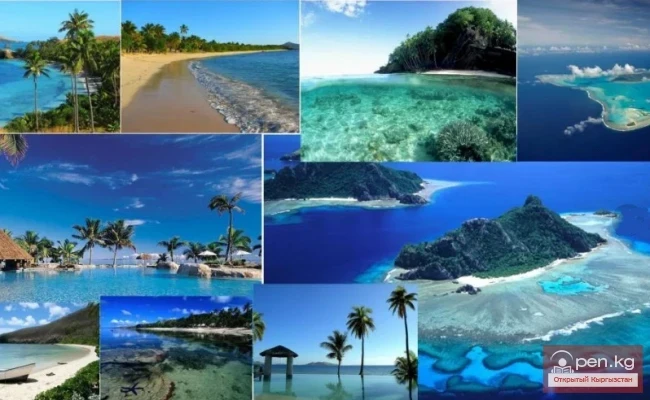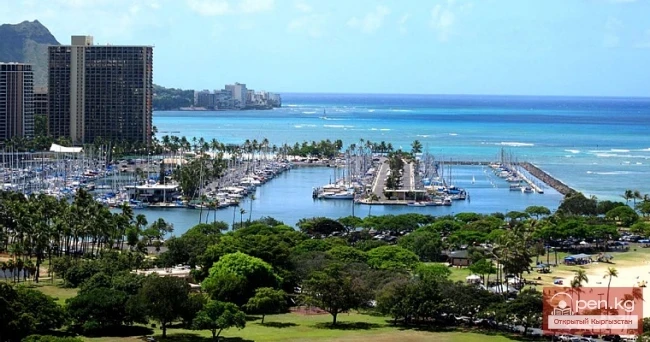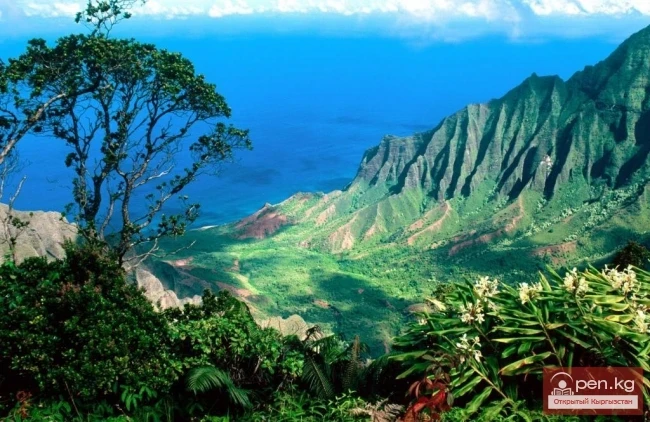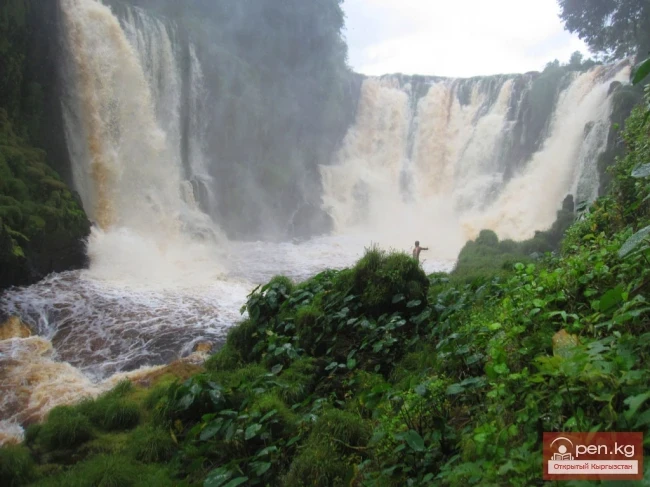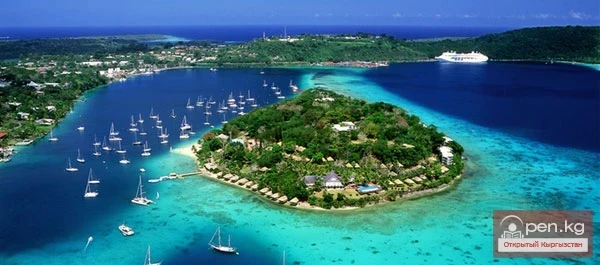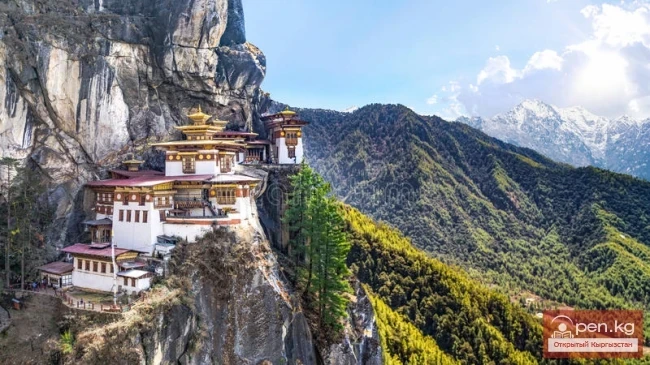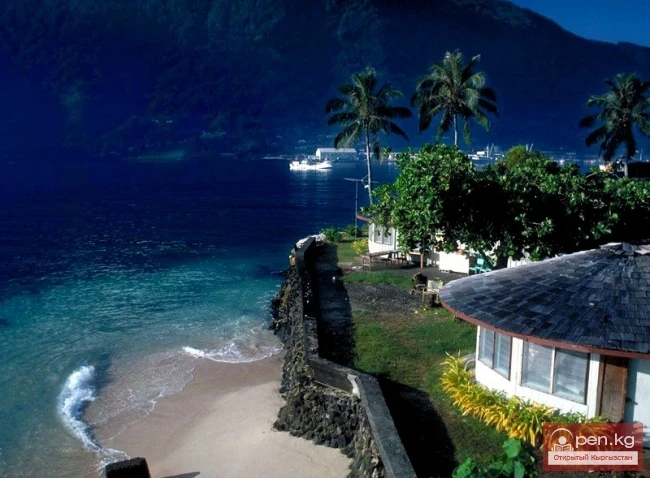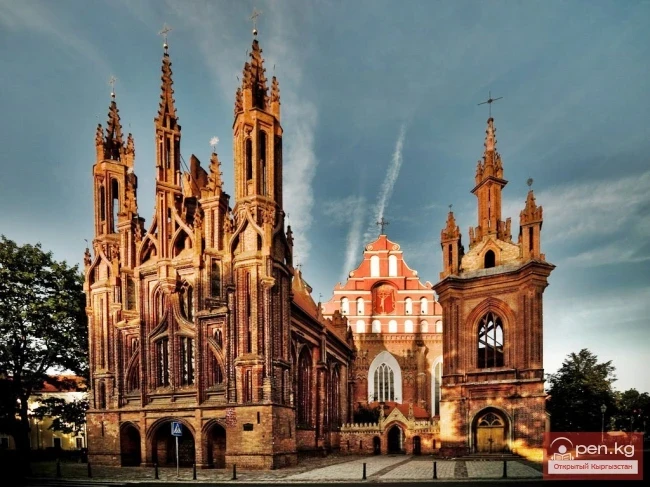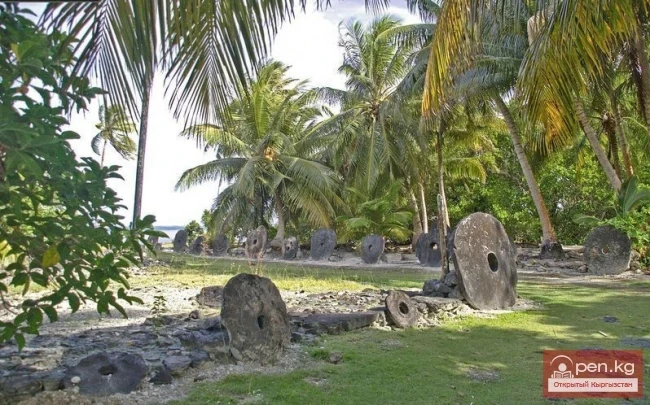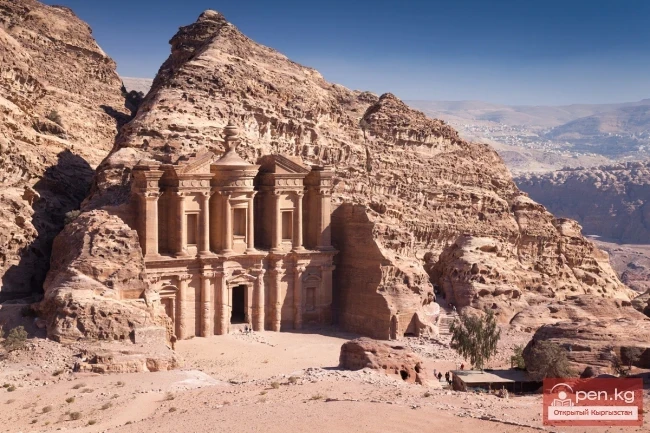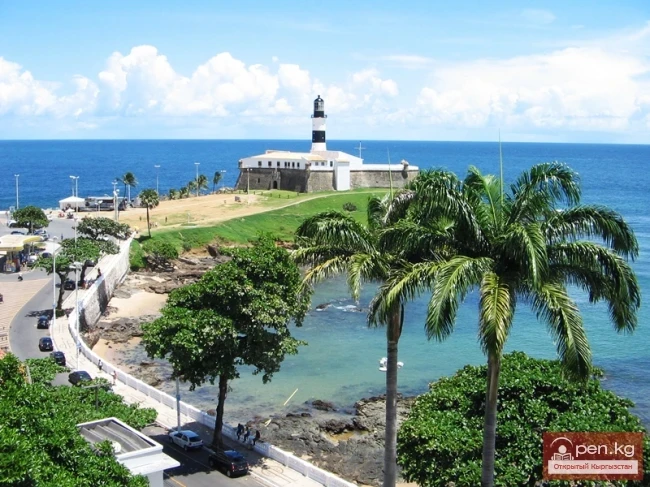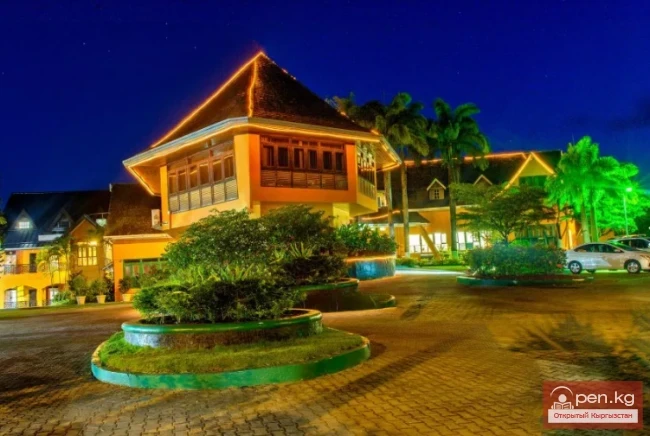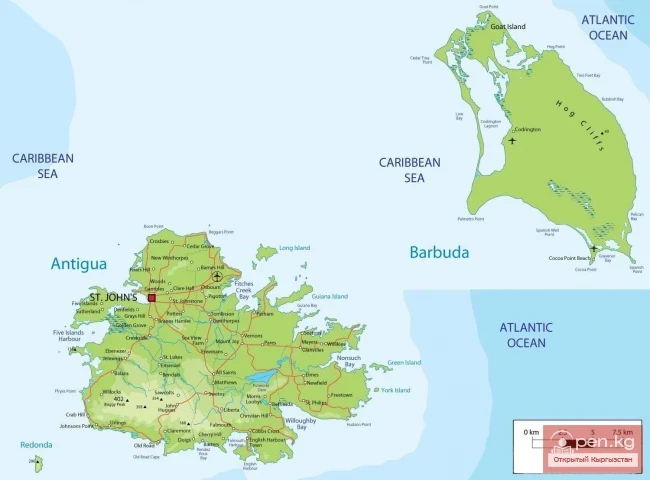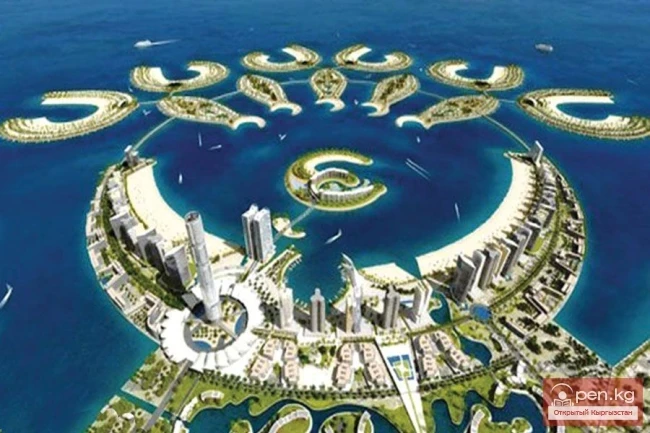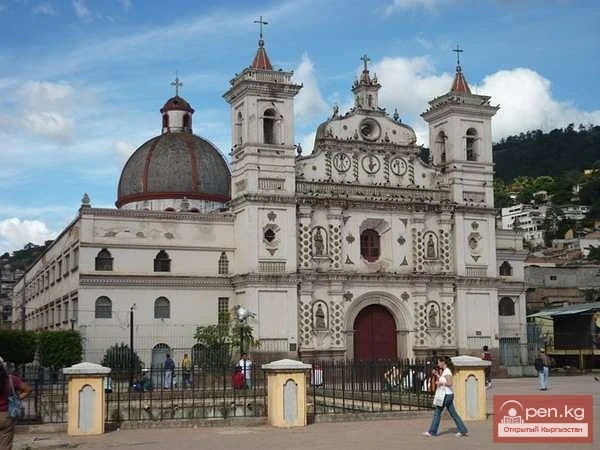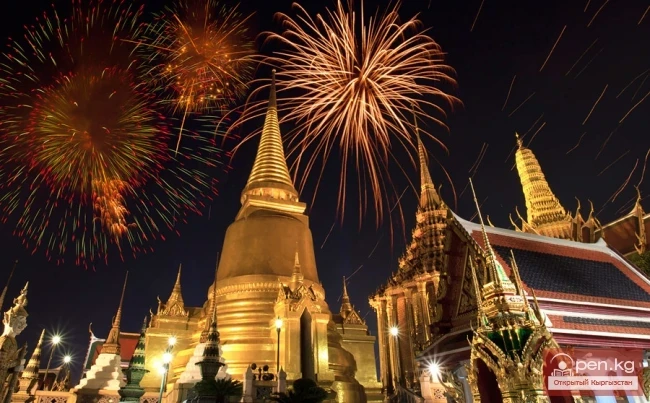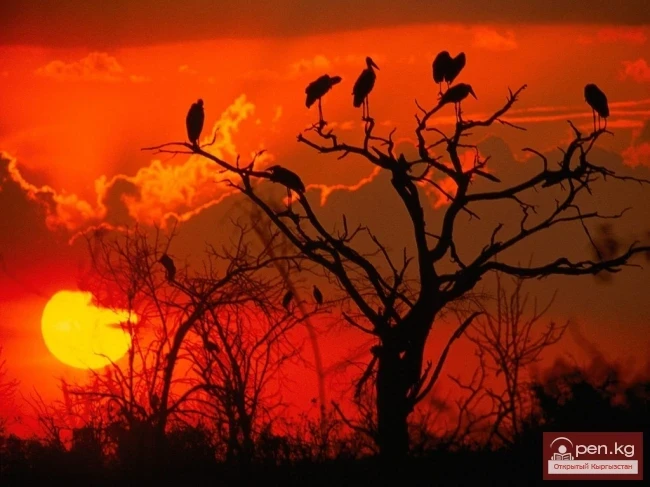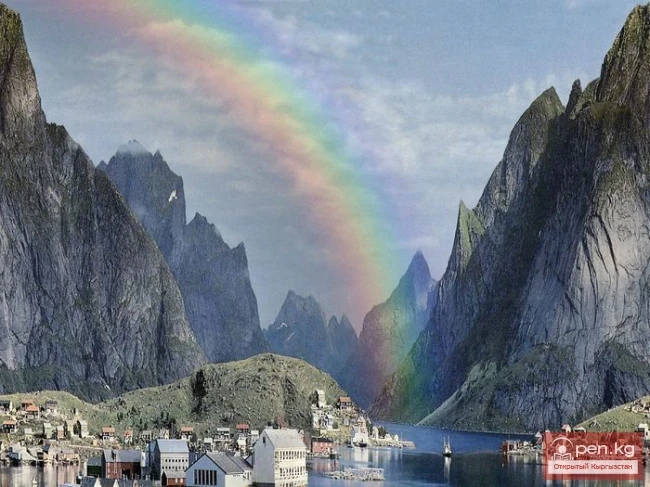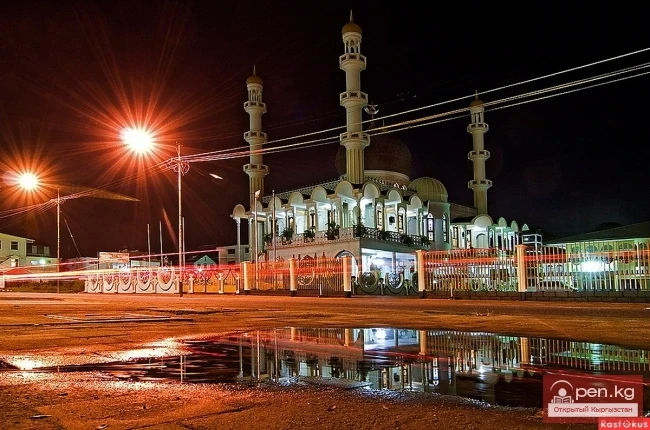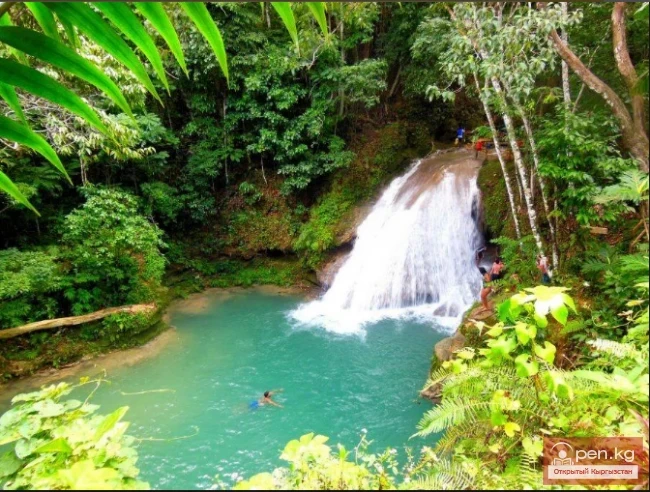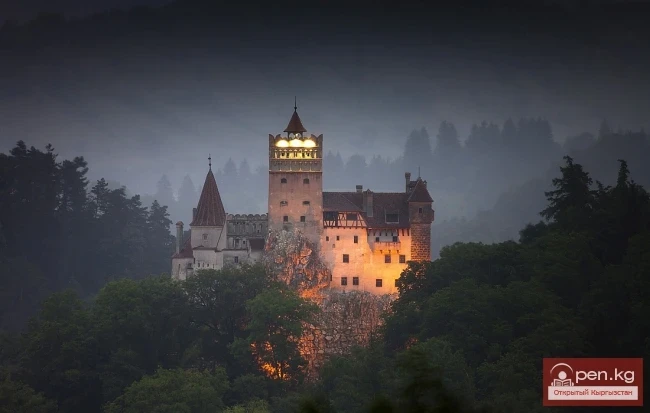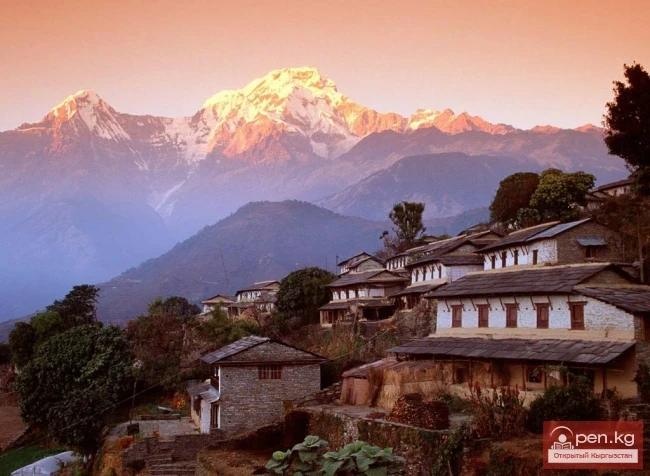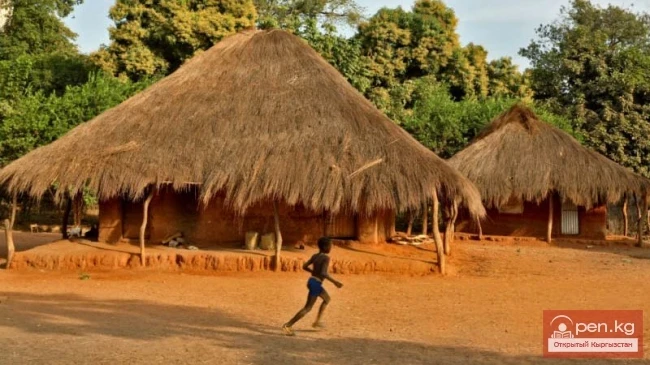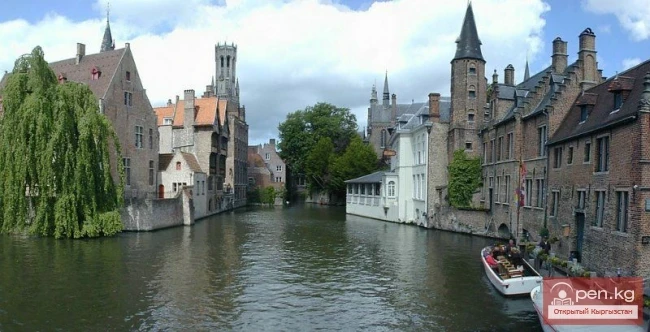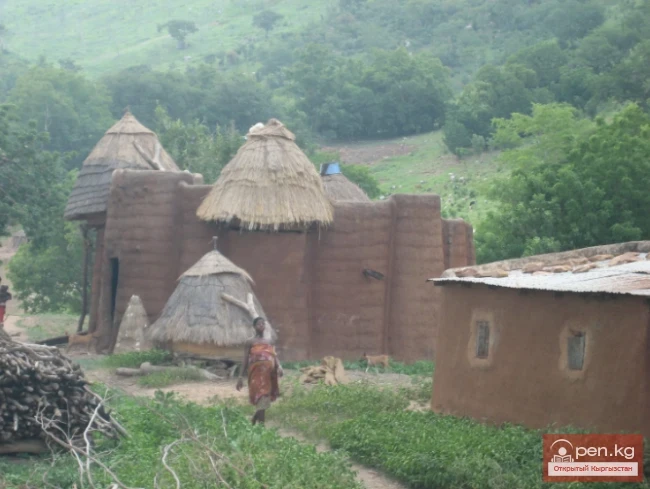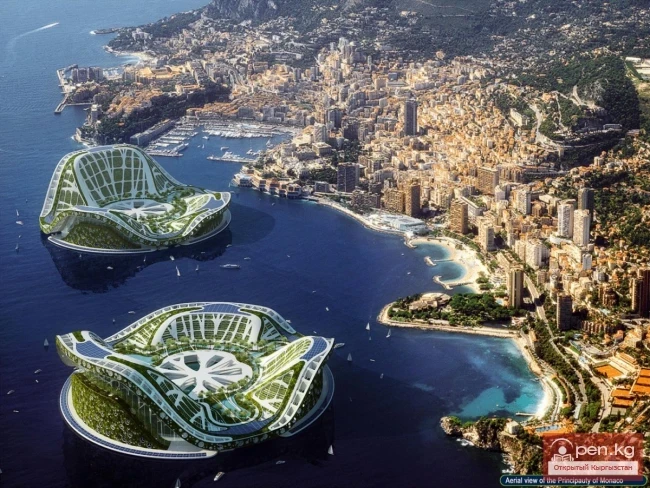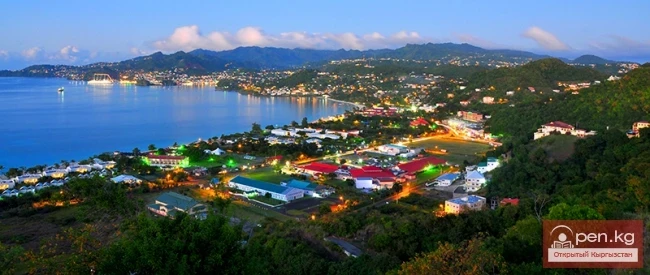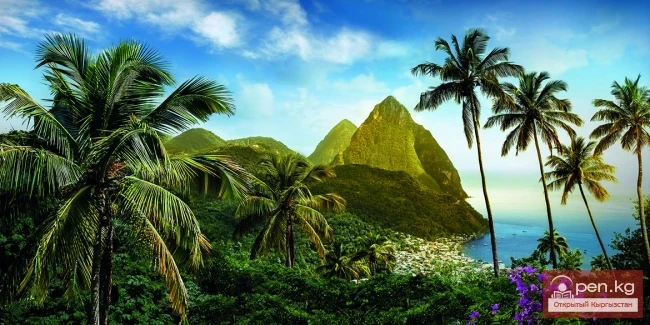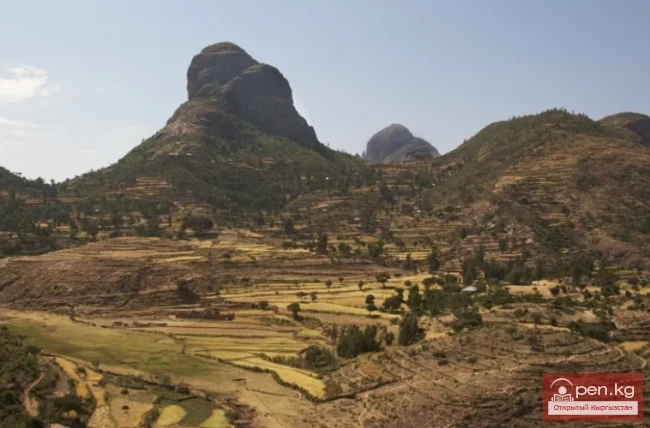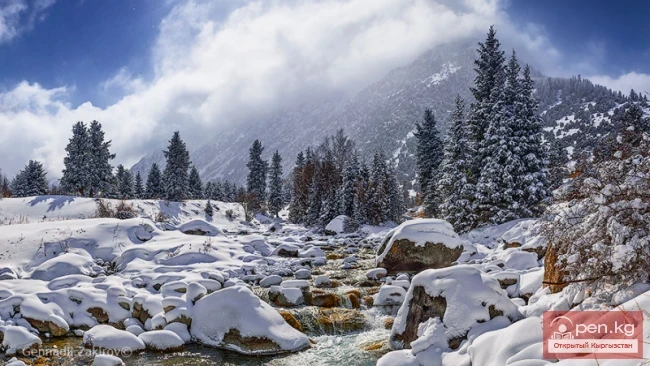NETHERLANDS. Kingdom of the Netherlands
A country on the northern coast of Western Europe, bordered by the North Sea. Area - 41.5 thousand km² (including inland waters; without them - 34 thousand km²). About 25% of the territory is below sea level and is protected by a system of dikes and other hydraulic structures, the total length of which is 3 thousand km. The capital is Amsterdam (about 1 million with suburbs). The seat of parliament and government is The Hague (457 thousand); other major cities include Rotterdam, Utrecht, Haarlem.
Administrative division - 12 provinces. Population - 16.3 million (2005), mainly Dutch, with Flemish in the south and Frisians in the north. The official language is Dutch. Religion: 31% of the population are Catholics, about 21% are Protestants, 5% - 12 - 2494 Muslims. The currency is the euro.
It has diplomatic relations with the Russian Federation (established with the USSR on November 10, 1942).
The national holiday is April 30 - Queen's Day (celebrated on the day of Queen Beatrix's accession to the throne and on the birthday of her mother, Queen Juliana).
The Netherlands is a constitutional monarchy. The constitution of 1983 is in effect. The head of state is the king (since April 30, 1980 - Queen Beatrix from the House of Orange-Nassau), who has an advisory body - the Council of State (its members are appointed by the king). Legislative power belongs to the king and the States General (parliament), which consists of 2 chambers (First and Second). The First Chamber (75 members) is elected by provincial legislatures based on proportional representation for a term of 4 years. The Second Chamber (150 members) is elected by the population based on proportional representation for a term of 4 years. The First Chamber was elected on May 26, 2003, and the Second on January 22, 2003. The executive power is exercised by the king and the cabinet of ministers (government) headed by the prime minister (since May 27, 2003 - Jan Peter Balkenende, Christian Democratic Appeal party). The government is a coalition (CDA - PVD - D66).
There are more than 70 political parties registered in the country, 9 of which are represented in parliament. The Labour Party (PvdA) was founded in 1946 on the basis of the social-democratic party and is one of the largest parties in the country, part of the Socialist International. "Democrats 66" (D66) was founded in 1966, a left-liberal party. The People's Party for Freedom and Democracy (VVD) was founded in 1948, a right-liberal party. "Green Left" is an association of leftist parties (founded in 1989 as a bloc of the Communist Party, Pacifist Socialist Party, Political Party of Radicals, Evangelical People's Party. The final merger occurred in 1991). The Christian Democratic Appeal (CDA) was created in 1976 initially as a bloc of 3 clerical parties: the Anti-Revolutionary Party, the Catholic People's Party, and the Christian Historical Union. The final merger into a single party occurred in 1980. The Pim Fortuyn List (LPF) is a right-wing party created in 2002.
In January 2003, extraordinary parliamentary elections were held. The Christian Democratic Appeal party received the majority of votes in the Second Chamber (44 seats). The remaining seats were distributed as follows (the results of the previous elections are in parentheses): PvdA - 42 (23), VVD - 28 (24), D66 - 6 (7), "Green Left" - 9 (10), Socialist Party - 8 (9), LPF - 8 (26), Christian Union - 3 (4), State Reform Party - 2 (0). In the First Chamber, VVD has 21 seats, CDA - 20, PvdA - 15, D66 - 4, "Green Left" - 8, Socialist Party - 2.
Trade unions: Federation of Dutch Trade Unions (founded in 1976 from the merging of social-democratic and Catholic trade unions) and the Dutch National Union of Christian Trade Unions (Protestant).
As a result of the Dutch Revolution of the 16th century, a Republic of the United Provinces was formed on the territory freed from Spanish rule. In the 17th century, the Netherlands became a world power with extensive colonies, but many of them were lost in the wars of the second half of the 17th century and in the 18th century. Currently, only the Antilles (Dutch Caribbean) remain under Dutch control (of which Aruba received self-governing status in early 1986). In 1810-13, it was part of France, and from 1815 to 1830, it was united with Belgium in the Kingdom of the Netherlands.
The Netherlands has been a member of the UN since 1945. It is part of the Council of Europe (since 1949), OECD (since 1960), EU (since 1957), Euratom (since 1957), Benelux, ECS (since 1954), NATO (since 1949), and several other international political and economic groups.
NATO headquarters, US military bases, military units, and Bundeswehr warehouses of Germany are located on the territory of the country.
The Netherlands is a highly developed industrial-agricultural country. GDP - 378 billion dollars, per capita - about 24 thousand dollars. 26% of the population is employed in industry, 3% in agriculture, and 71% in the service sector. There are deposits of coal. In the post-war years, oil fields were discovered, and rich reserves of natural gas were found, especially on the continental shelf and along the North Sea coast.
The main industries are electronics, oil refining, ferrous metallurgy, chemicals, food, textiles, machine engineering, and shipbuilding. More than half of industrial production is exported. One of the most important export items is natural gas (annual production is about 80 billion m³, about 70% is exported).
Agriculture plays an important role in the economy, accounting for a significant portion of exports. Agriculture is characterized by high productivity. With 3% of the working-age population, it provides food products for more than 200%. It is the third-largest agricultural exporter in the world after the USA and France. About 55% of all agricultural products come from animal husbandry. The country ranks among the top in the world in terms of greenhouse area, poultry, eggs, milk, butter (in world exports), and cheese production. The main agricultural crops are potatoes, sugar beets, and among cereals - wheat, barley, oats. More than 2 billion tulip bulbs are grown annually.
By tonnage, the Dutch trading fleet ranks third among EU countries. The port of Rotterdam is one of the largest in the world by cargo turnover - 322 million tons per year, with 80% of domestic transport done by road, 17.1% by water, and 2.9% by rail. The railway network spans 2850 km. The length of highways is 117 thousand km. There are 4 international airports. KLM ranks 7th in the world in passenger transport.
The main foreign trade partner is Germany (about 25% of imports and about 29% of exports). EU countries account for about 80% of exports and 79% of imports. Exports include finished products, foodstuffs, household appliances, and equipment. Imports include steel, vehicles, chemicals, and mineral fuels.
The unemployment rate in 2004 was about 6.6% of the working-age population, and the inflation rate was about 2%. The average life expectancy for women is 81 years, and for men, it is 76 years.
The Netherlands is home to several of the oldest universities in Europe, including Leiden University (founded in 1575), and universities in Utrecht (1636) and Groningen (1614). Among the largest daily newspapers are "Algemeen Dagblad" (380 thousand copies), "NRC Handelsblad" (272 thousand), "Telegraaf" (810 thousand), "Volkskrant" (372 thousand). The organization of radio and television broadcasting is the Dutch Broadcasting Corporation. There are 980 radio receivers, 650 televisions, 745 mobile phones, and 506 Internet users per 1,000 residents.
The news agency of the Netherlands is the Algemeen Nederlands Persbureau (ANP) - a cooperative association of Dutch newspaper publishers.
